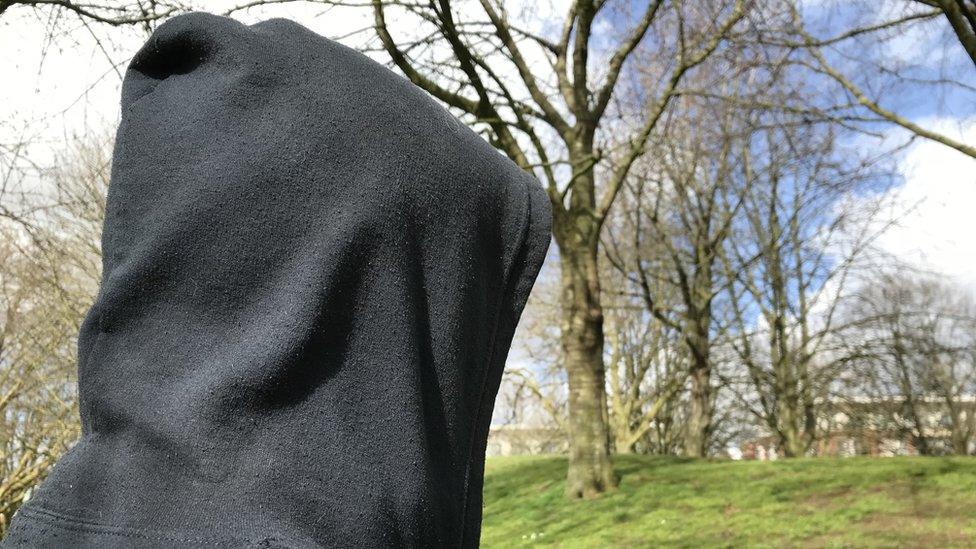Sextortion victims 'can be teens or pensioners' - PSNI
- Published

Police in Northern Ireland have received nearly 170 reports of cyber-related blackmail, known as "sextortion," in the past year.
Sextortion is a form of blackmail where a perpetrator threatens to reveal intimate images of the victim online unless they give in to their demands.
This is typically for money or more intimate images.
Det Supt Rowan Moore said 167 incidents had been reported by victims ranging in age from teenagers to pensioners.
It is understood this is an increase on the previous year.
Police said incidents had come about due to victims willingly sharing intimate images or footage of themselves, which could be embarrassing if publicised.
"The culprits can ask for anything from £200 to thousands of pounds to ensure the footage isn't released on social media platforms," said Mr Moore.
"Although we believe most of the victims who report it to us don't pay any money, there are some that do."
'Low-risk' crime
The PSNI has launched an online campaign to raise awareness of the issue, and urged victims to report incidents.
"We believe these types of crimes are generally under-reported and in some cases, people prefer to pay money rather than contact police," said Mr Moore.

The PSNI said the perpetrators of such crimes could be located anywhere, and many were based overseas.
Police said the crime was a "low-risk" way to make money, and an easy way to reach victims online.
Victims are often worried about reporting these offences to the police because they are embarrassed, said the PSNI.
Last year, it was revealed there had been a rise in the number of victims of sextortion being reported to the National Crime Agency (NCA).
In June 2015, Ronan Hughes, a 17-year-old from Coalisland, County Tyrone, took his own life after he became a victim of what police call "webcam blackmail".
In August 2017, the Romanian man who blackmailed the schoolboy was sentenced to four years in prison.
The PSNI has issued a set of guidelines about staying safe online:
Do not share intimate videos
Do not get lured into compromising situations, such as removing clothes or performing intimate acts
Always remember: What goes online may well stay online
Be wary about who you invite or accept invitations from on social networking sites. Do not accept friendship requests from strangers
Update the privacy settings on your social networking accounts so only people you know can view your account
Do not include any sensitive, private or confidential information in profiles
If you use online dating sites, choose those that offer the ability to email prospective dates using a service that conceals both parties' true email addresses
Quickly block nuisance and fraudulent users from further contact with you
If you become a victim of this type of scam, do not respond to the blackmailer's demands, but report the issue to the police and the relevant social networking site
If you think that you have been persuaded by anyone to part with payment details, contact your bank or card issuer immediately

- Published25 May 2018

- Published29 November 2018

- Published24 May 2018
